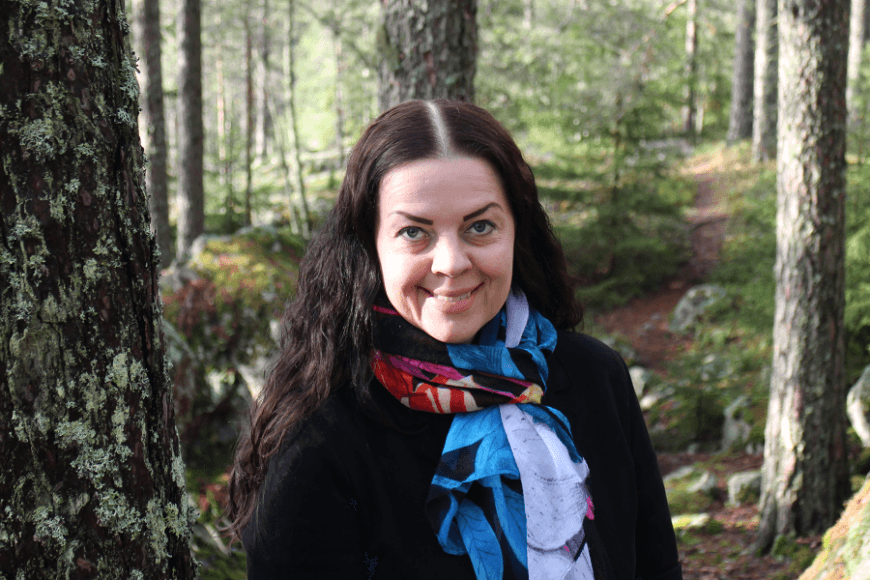
Work is an integral part of most of our lives. It connects us to society and creates content, well-being, and happiness, but it also creates time management problems, stress, burnout, challenges of interaction, lack of motivation, as well as physical and mental symptoms. The fundamental rights of both leaders and workers include a physically, mentally, and socially healthy conditions for working and feeling well.
Developing well-being at work preventively secures a healthy and productive work environment. In the last decades, research on well-being at work has expanded into the field of mental health and safety, focusing more on the well-being of personnel, the utilization of learning resources, coping at work, and issues of leadership. Wellbeing at work can be developed with methods for guidance like work counselling.
This dissertation examines solution-focused group work counselling based on experiential learning as a method to develop learning and well-being of leaders and professionals. This qualitative case study was carried out in three organizations positioned in the ICT as well as social and health care sectors. Data collection was accomplished in two phases.
The first data set included the transcribed conversations collected from two work counselling processes that were organized for the leaders (CaseA, CaseB) as a part of the “Process-Intensive Leadership Development Program” of the “Knowledge Work” project led by the University of Tampere.
The second data set consisted of the counsellor´s notes collected from the work counselling process organized for a group of professionals (CaseC). In all these cases, the research data was complemented with the case stories written by the counsellees as well as their selfassessments of the counselling processes. The researcher, as an academically educated work counsellor, counselled all the work counselling processes.
The theoretical framework of this research is based on well-being at work, positive psychology, solution-focused approach, experiential learning, and problem solving, out of which experiential learning cycle by Kolb was in the focal point. However, Kolb’s learning cycle was soon found out to be deficient for modelling precisely experiential learning and problem-solving processes of the work counsellees. Therefore, the researcher ended up developing a novel theoretical model called “The synthesis model of experiential learning and problem solving in group work counselling (KIRSTU)”.
The first version of the KIRSTU group work counselling model is called K1-model. It is based on three other learning theories in addition to the experiential learning cycle. To the best of the author’s knowledge, this is the most comprehensive theoretical model created for leaders’ and professionals’ group work counselling sessions. The K1-model was used as a basis for analyzing the qualitative research data with theory-based content analysis. Counsellees’ challenging experiences (case stories) were examined by focusing on their dialogical conversations.
The aim of this study was to find out how the K1-model worked as a background theory of the conducted group work counselling sessions, how the sessions proceeded concretely, what kind of topics were discussed, and what kind of similarities and differences were found between K1-model and work counselling sessions in practice. The goal was also to examine how KIRSTU model was developed and how it served as a solution-focused method for developing well-being at work.
The main result of this thesis is the second version of KIRSTU model called K2- model that was developed by refining the K1-model with essential research findings. This 5-piece K2-model is made up of basis; situation; problem; solution; implementation & assessment analysis. It goes beyond the K1-model by giving a comprehensive “flow” for dealing with the case stories of the counsellees in practice and by specifying detailed fields and elements. It also introduces two optional ways (branches 1&2) for case counsellee to implement a solution to the experience or not.
The qualitative content analysis of the research data showed that KIRSTU model provided counsellees with shared social and reflective colleague forums for discussions on the challenging work-related matters “by calling a spade a spade”. It also created conditions for reflecting the challenges, learning from experiences, and getting solutions and support from the others.
The learning experiences for boosting well-being at work included an increased awareness of reflecting one´s own behavior, increased courage to intervene work challenges and to set own boundaries, development of interpersonal skills, improvement in taking care of own resources, and tools for time management. Enthusiasm, joy, compassion, and positive energy were also found as positive mental changes of the counsellees.
The main contribution of the research for the working life is the developed KIRSTU model that can be used for teaching work counselling/counsellors. The main target group is made up of the leaders and professionals who work in the turbulent environment and whose well-being can be developed with this practical tool.
The doctoral dissertation of M. Soc. Sc. Tarja Vanne in the filed of social psychology titled Ratkaisukeskeinen ryhmätyönohjaus esimiesten ja asiantuntijoiden kokemuksellisen oppimisen ja työhyvinvoinnin kehittämisen menetelmänä will be publicly examined at the Faculty of Social Sciences of Tampere University ar 12 o'clock on Friday 3 December, 2021. The venue is Linna building lecture hall K103, address: Kalevantie 5. Docent Sauli Puukari from University of Jyväskylä will be the opponent while Professor Johanna Ruusuvuori will act as the custos.
The evetn can also be followed via remote connection.
The dissertation is available online at
http://urn.fi/URN:ISBN:978-952-03-2125-3
Photo: Nelli Vanne
